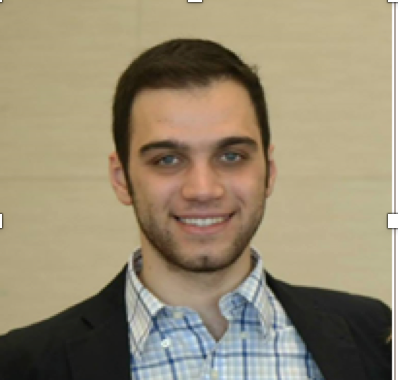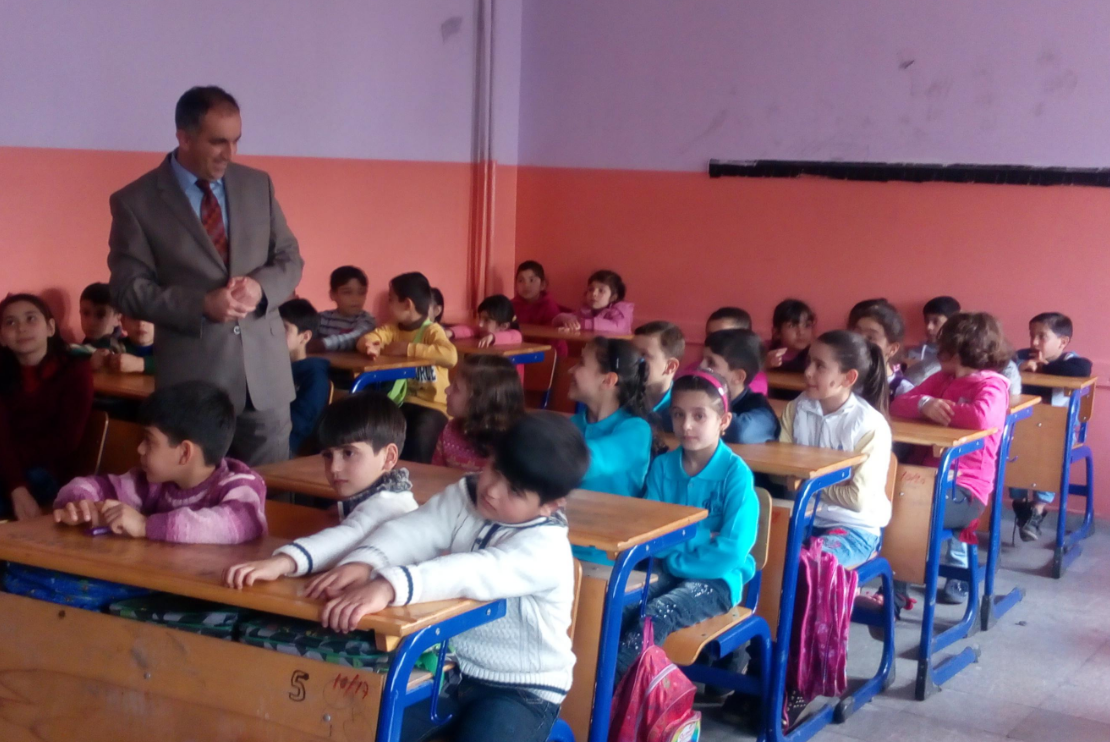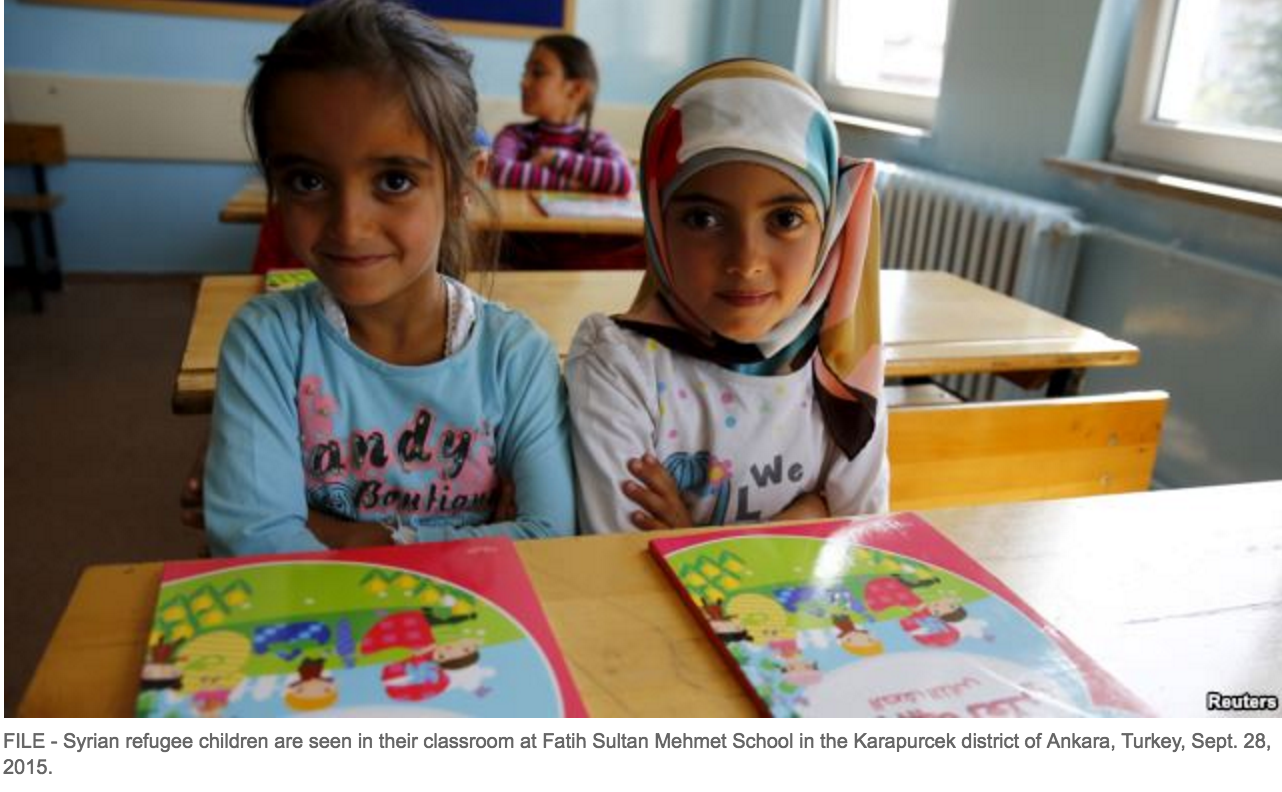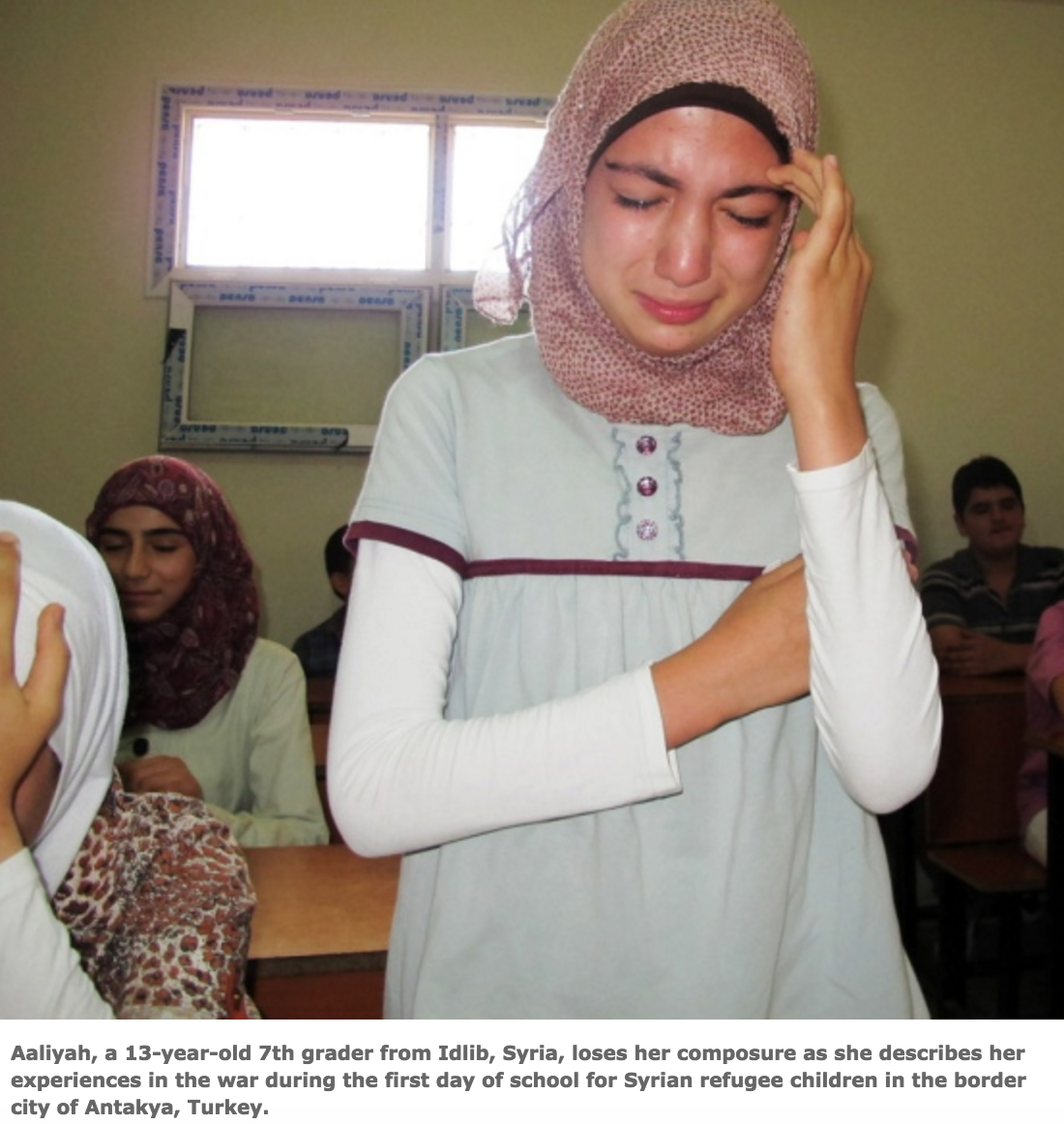 The Educational Opportunities and Challenges of Syrian Refugee Students in Turkey: Temporary Education Centers and Beyond
The Educational Opportunities and Challenges of Syrian Refugee Students in Turkey: Temporary Education Centers and Beyond
By Salih Yasun*
For Syria Comment, July 25, 2016
Almost 3,000,000 Syrians have fled to Turkey since the Syrian uprising began. Approximately 880,000 of those are school-age. 45% of those, or more than 400,000, attend school.[1]

Syrian refugee students in Turkey who are in preschool or first grade attend only Turkish schools. They do so through a government mandate. After first grade, they face two main options for for education from grade two to twelve. Syrian students can choose to attend either Turkish public schools or temporary education centers. Temporary education centers (TEC) are primary and secondary education centers that provide educational opportunities for school-age Syrian children in Turkey (MEB, 2014). These schools use Arabic as the medium of instruction; they follow a curriculum designed by the Ministry of Education of the Syrian Interim Government and modified by the Turkish Ministry of Education.[2] Currently, approximately 78% of Syrian refugee students attend TEC, and 22% attend other schooling institutions, consisting of mainly Turkish public institutions.[3] In order for students to register at TEC, they need to obtain an international protection ID from a nearby police station. Students can physically attend classes at TEC even if they do not have IDs provided by the Directory of Police if they provide basic information to TEC officials through personal statements. However, students still need to obtain IDs to be able to receive diplomas and grade reports. To be placed in the appropriate classroom at TEC, students need to prove their academic trajectory in Syria or take a placement exam. These exams are not uniform as each TEC has its own exam with different questions. The score of the exam determines the placement of the student into a grade level. Students wishing to transfer to Turkish schools are automatically placed in the nearest Turkish school in proximity of their residence. However, cases of transition remain significantly low. Students who complete their education at TEC can attend in Turkish universities if they succeed through Baccalaureate and YÖS examinations.
The support for TEC comes from different agents such as NGOs, local municipalities, the Ministry of Education, and private donations. The services provided by such agents have included scholarships, meals, transportation, activities for students, wages for teachers, and spaces for education. However, the support is still not sufficient for many TEC to cover the expenses of education. TEC are commonly located in office blocks, NGO buildings, and Turkish public school buildings.

The basic challenges of TEC can be categorized under three groups. The first group consists of the challenges related to the accessibility to education, which are also relevant for the accessibility to education at public schools. The second group consists of the challenges with the quality of education at TEC, and the third group consists of the challenges of transferring to public schools or universities from TEC. The challenges faced in accessing to education can be summarized as follows:
An important segment of students has to work to cover the living expenses of their families. Some TEC organized conditional aid programs to provide aid for families of students while returning students to TEC. However, the conditional aid programs remain very limited in scope nationwide. Students and parents may not know about educational opportunities in Turkey. The Ministry of Education has coordinated with UNICEF to provide information regarding educational opportunities to students and their parents. School fees can prevent the access to education for many students. Although education is free for refugee children, most TEC are dependent on donations from students with wealthier parents. As a result, in some cases these TEC may choose to admit students whose parents could provide donations over those who could not. This could prevent the orphans or children of poor families from accessing the educational opportunities. Many TEC have not provided uniforms to students. This may prevent students without appropriate clothing from accessing the educational opportunities. This problem is especially acute for girls. Some parents have discriminatory views about girls’ educational attainment, which hinder girls from accessing the educational opportunities.

The challenges associated with the quality of education can be examined under the topics such as the provision of counseling services, Turkish language education, the quality of teachers, and the provision of educational materials.
Refugee children’s exposure to violence might lead them to develop post-traumatic stress disorder (PTSD).[4] TEC need counselors that can assist students experiencing PTSD. A majority of TEC do not have counselors or the existing counselors are insufficient in meeting the needs of students. Male students tend to be more comfortable consulting with male counselors whereas female students were more comfortable consulting with female counselors. At some TEC all of the counselors are male and at some other all of the counselors are female.
Currently, students at TECs receive four to five hours of Turkish education per week. At some TEC the Turkish education is provided by volunteers free of charge, at others the expenses of Turkish teachers are covered by the TEC or NGOs. The Turkish education is considered insufficient because of the low quantity of language hours the lack of quality of teachers in teaching Turkish to non-native speakers. In addition, the reliance on volunteers may also hinder the language acquisition process due to the absentees of teachers. The opportunities for students at TEC to speak Turkish outside of the classroom is also very limited. The Ministry of Education is providing training for teachers in teaching Turkish to non-native speakers. The Syrian teachers at TEC utilize teacher-centered methodologies with great emphasis on memorization, which hinder the adjustment process of students to the Turkish educational system.
Currently, the Ministry of Education of the Syrian Interim Government provides the textbooks for courses other than Turkish free of charge to the students of TEC. Some TEC provide Turkish language textbooks free of charge, whereas some others charge fees. Some TEC do not provide Turkish language textbooks. Many of the TEC lack the basic science equipment.
Students face some problems in transferring from TEC to public schools. Although the curriculums are close, there are some discrepancies. For instance, a subject might be taught at the 5th grade at TEC but at the 4th grade at public schools, which could add extra challenges to the adjustment phases of Syrian students transferring to Turkish schools. Another problem is the lack of information about the accreditation exams. In the last education year students were given almost no information prior to the exam which prevented students from studying for the exam effectively. At some public schools Turkish teachers and counselors do not pay proper attention to the education of Syrian students despite the fact that Syrian students, many of whom lack the proper Turkish language skills, require more attention than their Turkish peers to succeed in the classroom. In addition, deeply established discriminatory views exist among the Turkish community towards Syrians, which prevent Syrian students’ integration among their Turkish peers.
The problems at TEC can be solved through coordination between NGOs, TEC, ministries and municipalities. Students can be provided with daily meals at TEC to lessen the financial burden of families and incentivize families to send their children to TEC. Special TEC can be opened to target students who have missed years of schooling in order to help them to catch up their peers. The conditional aid programs can be expanded. Transportation means and uniforms can be provided. The ministry of education can open vocational training programs that can enable refugee students to provide meaningful income for their families while earning valuable skills that they can transfer to their home countries.
The wages of teachers can be increased above the minimum wage and provided for 12 months in order to ensure that the highly skilled teachers continue practicing their profession. The number of trained counselors can be increased, with the goal of having at least one female and one male counselor to ensure that both male and female students can access counseling services. Once this is accomplished, the student/counselor ratio can be lowered. Turkish instruction hours can be increased. Turkish language books and basic science equipment can be provided. Sister school projects can be established between TEC and public schools which can enable Turkish and Syrian students to interact with their peers. The teachers at TEC can receive orientation on student-centered teaching methodology.
Free YÖS courses can be opened and the contextual differences between Syrian and Turkish curriculums can be removed to ensure smooth transitions to public schools and universities. Students can be informed in a timely manner regarding the accreditation exams. Orientation services can be provided to teachers and principals at public schools regarding the refugee education. The visibility of Syrian community and refugee students in the public can be increased by providing public service broadcasts focusing on Syrians in Turkey.
* Salih Yasun is a PhD student at the political science department of Indiana University and a graduate of Sabancı University’s master’s program in political science. e-mail syasun@umail.iu.edu
You can find the Full article is here
[1] Interviews with government officials.
[2] The current curriculum mimics the curriculum utilized in Syria prior to the Civil War. The material in favor of Assad dynasty, Baas party and some controversial elements about Syria-Turkey relations have been excluded from the current curriculum.
[3]Estimations based on Emin, M. N. (2016). “Türkiye’deki Suriyeli Çocukların Eğitimi, Temel Eğitim Politikaları.” SETA.
[4] Brown, D. (1996). “Counseling the victims of violence who develop posttraumatic stress disorder.”
The post “Educating Syrian Refugees in Turkey,” by Salih Yasun appeared first on Syria Comment.